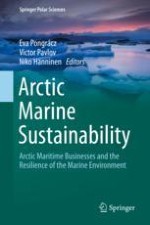2020 | OriginalPaper | Buchkapitel
16. The Possibilities and Limitations of Tourism Development in Greenland Impacting Self-efficiency and Socio-economic Wellbeing of Coastal Communities
verfasst von : Vishakha Tay
Erschienen in: Arctic Marine Sustainability
Aktivieren Sie unsere intelligente Suche, um passende Fachinhalte oder Patente zu finden.
Wählen Sie Textabschnitte aus um mit Künstlicher Intelligenz passenden Patente zu finden. powered by
Markieren Sie Textabschnitte, um KI-gestützt weitere passende Inhalte zu finden. powered by
